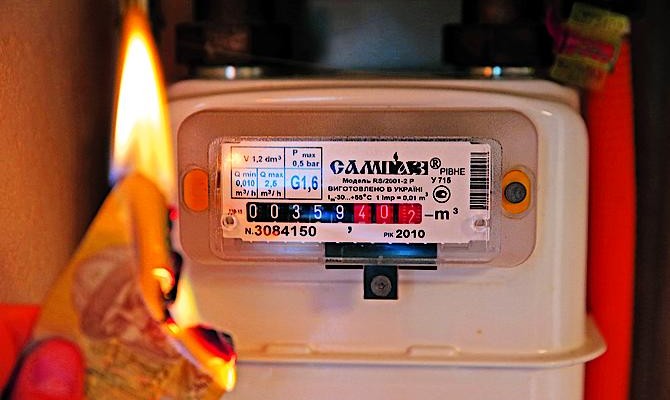Economy
prospectsThe Cabinet disabled the manual control of housing utility rates, which means they will now be adjusted quite frequently

For the first time in several years, in 2014 the rates of all forms of housing and utilities services were raised in Ukraine. Depending on the city and the type of services the growth rate was 100% and higher. Premier Arseniy Yatsenyuk said citizens should be prepared for a hike in housing utilities services right after the new government was formed. The Cabinet of Ministers acknowledges that the previously existing tariffs frozen by the previous government did not cover the cost of services, not to mention profits for suppliers. In order to minimize the pressure on the national budget, the Cabinet decided to audit subsidies provided for disadvantaged categories of the population. However, at the same time the government promised to use a part of the loans from international financial institutions to pay compensations to those citizens that are in desperate need.
External pressure
There were a few reasons for the radical revision of housing utilities rates. The government’s official reason was the rising cost of energy, which was due to the failure of Kyiv and Moscow to reach a compromise on gas prices. But what is more important is that the hike in utility rates for households, first and foremost, the increase in the prices of natural gas, was one of the conditions of the International Monetary Fund for extension of loans to Ukraine. This past spring, western economists warned that the failure of Kyiv to implement the fund’s requirements could lead to a decrease in consumption and investments into production. Consequently, this will have a negative impact on the growth of the Ukrainian economy.
“All the measures provided by the IMF’s aid package, including an increase in tariffs for gas and housing utilities, will have a negative impact on the population’s purchasing power and reduce the government’s ability to increase budget expenditures this year,” says the report of the World Bank on Ukraine published this April. Representatives of the IMF also mentioned similar consequences. Earlier, Chief of the IMF Mission Nikolay Gueorguiev said the rising cost of gas and utility services in general should be accompanied by strengthening of social security measures to mitigate the impact on the most vulnerable strata of the population.
The demand to lower housing utility rates remains one of the most popular slogans on the eve of the elections. And today feeling the national outrage about the increase in prices of utility services certain members of the parliament are trying to play on electoral preferences. For example, in July MP Mykola Rudkovskiy registered a bill introducing a moratorium on a further increase in the cost of housing services. In his bill he also proposed returning the rates back to the level that was in force until 2014. Alas, none of the deputies or government officials supported this idea.
Better our lot
In July, when the most significant hike in utility rates happened, the government promised to develop a special compensation program. Premier Yatsenyuk said the corresponding directive was given to the Ministry of Social Policy. The premier said it would be “the most ambitious compensation program” that would apply to 30% of the population. It is presumed that the money to cover the difference will be taken from the loan granted to Ukraine by the World Bank. Approximately US $100 mn of US $300 mn received will be allocated for compensations, said the head of government.
“Compensation will be granted if, for example, a person paid UAH 300 for housing utility services and now the fee will be UAH 400, which means the compensation is UAH 100,” said Minister of Social Policy Lyudmyla Denysova, adding that this money would be given to families whose total combined monthly income is lower than the subsistence level. At the same time, she said the money would be transferred directly to service providers and not be handed out in cash to citizens. But so far only a small number of those entitled to benefits took advantage of this opportunity. Only 2,100 families filed for compensation, while more than 3.5 mn families are eligible to receive the benefits, according to the Ministry of Social Policy.
Responsible for quality
Revision of tariffs, including natural gas rates, was inevitable. However, a member of the Supervisory Board at the Institute of Energy Strategies Yuriy Korolchuk believes increasing the price of gas for households had to be done gradually, by 10–15%, whereas this year the rate was hiked by 50% in one fell swoop. A gradual increase would soften the blow to the budgets of the average Ukrainians. Korolchuk says that over the past ten years revision of tariffs was restrained artificially and was extremely negligible, despite the fact that the validity of the previously established price was far from economy-based. In particular, gas produced in Ukraine for cooking and heating purposes cost approximately UAH 800 per 1,000 cubic m for households and its production, taking into account transport costs and taxes, cost utility companies approximately UAH 700. “As a result, there was nothing left for the development of domestic production,” Korolchuk stressed.
The increase in the cost of housing utility services must be accompanied by improvement of their quality, experts say. Moreover, equipment needs to be upgraded and production must be modernized. Expert at the Public Safety Foundation Yuriy Havrylechko says that most service providers are monopolies, which explains why they are not interested in improvement of the quality of services. In addition to that, not all companies are the owners of utility networks, which are often owned by local communities. Therefore, business owners will not invest in foreign assets.
Nevertheless, Director of the City Institute Analytical Center Oleksandr Serhiyenko notes that the recent changes in the law allow people to demand appropriate quality from providers. We are talking about regulation of signing direct contracts between companies and consumers passed by the parliament. This will allow citizens to sue for compensation for sub-standard services or insist on their improvement, he said.
Taking out one’s own
Having raised the cost of public services, the government decided to deal with previously accumulated debts. The State Statistics Service reports that as of the beginning of August the total debt of Ukrainians for the housing utility services, with the exception of electricity, was UAH 11.03 bn, while as of the beginning of the year the amount was UAH 11.9 bn. This year (over seven months) the population did not accumulate any new debts, payments for previous periods were partially settled and in some cases payments were made in advance, according to the SSS. Some experts assume that this could be related to the dramatic increase in tariffs – fearing accumulation of debts citizens try to pay off their old debts to the maximum.
In addition, being in debt could have financial consequences for debtors. In late August, the Cabinet registered a bill proposing to establish a penalty for consumers in the event of overdue or incomplete payment for housing utility services in the amount of 0.1% of the overdue payment. “This is more of a psychological than material method for solving the debt problems of the population,” says Head of the Administration of Economics of Life Support Systems at the Ministry of Regional Development, Construction and Housing and Municipal Services Natalya Hotsyanovska.
If the parliament adopts the document the provision will take effect next January. The official believes that the penalty may eventually be an ineffective mechanism. In her opinion, the government should take care of the decrease in the size of the debt. A bill on restructuring of such debts of the population for housing utility services has already been drafted. This document envisages that the amount of people’s debts for consumed services accumulated by the beginning of 2014 is subject to restructuring by installments for up to 60 months depending on the amount of the debt and the level of people’s incomes.
Keeping up with prices
The government does not rule out a further rise in utility prices, though this year a dramatic increase in tariffs is not likely. Former Chair of the National Housing Utility Services Regulatory Commission (NHUSRC) Serhiy Dunailo says after the increase in tariffs in July, energy prices have gone up again. As a result, at the moment the tariff for heating covers 92% of the cost of its production, says Dunailo. “According to the law, the regulator is required to revise rates in case of changes by more than 5%,” said the official. He adds that the NHUSRC was preparing for the next revision, but the president decided to disband it, combining it with the National Energy Regulatory Commission (NERC).
Creation of the new agency will take a few months. This means that rates will not be revised before the beginning of the heating season, which should start in October. Dunailo calculated that the difference between the cost of production of thermal energy and the tariff paid by the end of the year in Ukraine will be UAH 1.6 bn.








 of the agreement of syndication with Financial Times Limited are strictly prohibited. Use of materials which refers to France-Presse, Reuters, Interfax-Ukraine, Ukrainian News, UNIAN agencies is strictly prohibited. Materials marked
of the agreement of syndication with Financial Times Limited are strictly prohibited. Use of materials which refers to France-Presse, Reuters, Interfax-Ukraine, Ukrainian News, UNIAN agencies is strictly prohibited. Materials marked  are published as advertisements.
are published as advertisements.